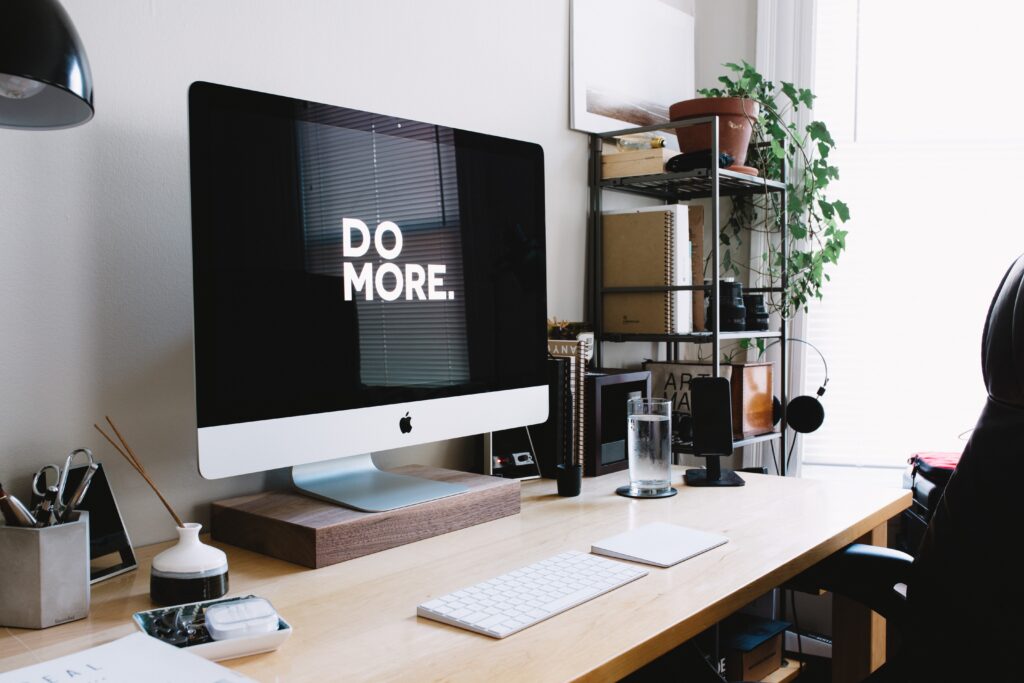Have you been working hard continuously yet still feel like you are at square one? Do you need to create some balance in your work life? Would you like to boost your productivity?
Each week I celebrate my small wins on a Friday as part of my weekly reflection. However this week, I felt as though I hadn’t been ‘productive’. When I was questioned about my feelings of being unproductive, I had to take a step back and think.
‘What did you do in place of being productive?’ I was asked. I paused as I had to think about it. Although I felt like I was procrastinating, I Intuitively knew that the rest and recuperation (which took its place) was vital for my process of productivity.
At times, taking a step back to rest feels as though you are wasting time or being unproductive but this simply isn’t true. Rest and relaxation allows the mind time to process.
How do you define productivity?
This means different things to different people. For some it’s how much work they produce in a given time. Often when we tick off the tasks we set out to do we feel productive. But really we must be careful to ensure that the work that we do complete is of a good quality. Recently, I have begun to measure my productivity on the quality of work produced rather than the amount of tasks I have completed. Quality over quantity. The satisfaction I get is far more rewarding.
So how can you gain that satisfaction of being productive? Below are 5 ways to increase your productivity. Consider these tips when you feel you may be procrastinating or lack focus.
1. Engage in a hobby
Yes you read that correctly. To develop productivity a hobby will help. Have you got a hobby? Deep play, as Alex Soojung- Kim Pang founder of Strategy + Rest refers to it, offers many of the same pleasures we gain from work in a very different context. When you engage in a hobby it offers you (as a busy person) an alternative to your working life.
We all know the feeling, when we complete a 5K run challenge or added the summarising statements to a report we have been working on. That feeling is exhilarating. Both are personally satisfying. However, a hobby offers the same psychological benefits as work minus the frustrations. Putting your best efforts into something without criticism or comments is great for your wellbeing and productivity.
With hobbies we get the ability to switch out of work mode and experience the feeling of passion.
As an educator, wherever you are in your career journey, I think it’s fair to say that we all started with passion. We were all attracted to the career as we wanted to make a difference in young people’s lives. For most, this is our passion. However, many educators sadly lose this passion because we work too hard without any planned leisure time falling victim to burnout. Statistics published by the Department of Education revealed that almost one in three teachers sadly leave the profession within five years of qualifying. Perhaps scheduling leisure time may have an impact as well as the retention packages that some schools offer.

Additionally, leisure time can offer an opportunity for your subconscious mind to process ideas even when you are focused on something else. Think about those answers that pop-up in your mind when you’ve taken a break and are doing something else. This has happened to me on many occasions. In fact, many of my best ideas or solutions to my problems arrive when I’m not working. I’ve always thought that they just popped into my head, but what I now believe is that my mind has had time to process solutions in the background and is offering up a solution.
Elizabeth Gilbert’s book Big Magic also speaks about this notion of an idea visiting you and trying to get your attention. At times, we do not notice solutions or ideas. Often we are so entangled in the complexities of work, or put simply in others words, our minds are unreceptive to inspiration.
Finding time for a hobby will facilitate the environment for solutions and ideas to arise. Teachers have a right to engage in deep play.

2. Structure your work day
Do as you do with your social life.
We all work differently yes but having a structure has never caused anyone any harm. Having a list of tasks works but how about allocating time periods to your tasks? It works in a school timetable so why not with your own personal tasks?
Structuring your work calendar into smaller jobs allows you to clearly see what needs to be completed. Have you ever found that a task absorbs all the time that you spend on it? The task expands to fill the time given. However, when you allocate a job to a specific timeframe you work more efficiently to complete the task. This is especially true if you have a list of jobs scheduled to complete.
Try to plan work for shorter, more focussed hours. This may be in one hour to 90 minute periods. Working in this way allows you to give your best in small bursts, then if need be, return to it at another time for another 90 minute interval. Remember it’s quality over quantity.
A small change like this may increase your productivity especially when you see that you are completing these tasks over time. Schedule your week but remember to build in those opportunities for those day-to-day unplanned contingencies that school life likes to serve up.
3. Unplug: have a no technology evening
To have one evening at home a week without any technology will allow your mind time to process the information that it has gathered throughout the day. Not only this but it will also allow you time for that hobby or time quality time with family and/or friends.
Unplug: switching off from screens allows the brain to rest and access.
But how can I do this? I understand that for many the only time you can get in the day is in the evenings to sit down and work through your emails. However, have you considered why this is? Could you create time in the day where you avoid and say no to distractions in order to respond to emails. During this time you may even be able to compose your own.
4. Set clear boundaries
With the recent blur of work and home-life, it has been challenging to define our life between home and work. Unfortunately, for many of us, the boundaries between work and our personal life has been significantly blurred. Work physically entered our homes for many months becoming the new normal. It was clear to see how the lack of boundaries could cause work to completely submerge our home and personal space. Many of us have had to learn the hard way, first becoming overwhelmed before taking a step back and drawing a healthy boundary line.
Set clear boundaries between work time and personal time.
Once you know your values and have clarity with your intentions you will develop the confidence to set clear boundaries.
Individuals are not skilled in setting the boundaries between work and home (and) colleagues fail to respect other’s rights to free time.
Steve Harvey
Often we spend time talking to colleagues about matters that are not really going to help with your productivity at that time. Discussions and sharing ideas is essential yes, but even these discussions can be scheduled. Make time to have valuable discussions with teachers/leaders during your lunch break. (Yes you should be having this! Remember your work expands to fill the time.)
Eventually, your colleagues will know when they can contact you and will respect your boundaries.
Healthy boundaries are different to barriers to work. With a boundary people respect the line – there is still communication. A barrier creates disconnect and demonstrates that you are not part of the team.
Setting boundaries is not self-fish. It is crucial. If you don’t you may find that you feel under appreciated which can lead to feelings of resentment. These feelings are not motivating and decrease your productivity.
5. Plan time to rest for productivity
Making time to rest is not avoidance of a task, it actually boosts productivity. A twenty minute nap has been proven in studies to boost your mind and ability to be productive. Perhaps we can’t quite fit in time for a nap during the school working week but what about the weekend?
Alex Soojung-Kim Pang’s work around rest and shorter working hours is fascinating and really does challenge our old beliefs and attitudes towards work. His belief is that we should be resting more and working less. Again he uses the term active rest which implies that rest should be intentional. Once we appreciate the benefit that rest has within our working life, I doubt many of us will continue to attach guilt to rest and recuperation.
There is in fact productivity in rest. Recouping allows renewal and this process is valid in its own right. As he states breaks should be seen as a partner to work. Both rely on and sustain each other.
Rest is not our competitor to work but our partner to it.
Alex Soojung-Kim Pang
This awareness enables balance and aids mental wellbeing.
Teaching is a rewarding yet challenging job. As productivity is a personal definition. It’s vital that you establish your balance between work, rest and play. Schedule time to be productive so there are frequent opportunities for you to reflect on your accomplishments. They should be recent memories.
Which action will you take to boost your productivity? Share your comments below.
Related posts:
15 Self-Care Tips for Teachers
If you have found this post useful please share.
